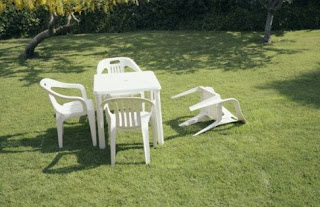We will never understand evil and yet, since last Friday’s horrific event in a movie theater in Aurora, Colorado, we have been trying. Alleged mass murderer James Holmes amassed a large cache of weapons and ammunition, all of which he acquired legally. How can we use existing laws and safeguards to stop such madness? Should we reinstate the ban on assault weapons that expired eight years ago? Is there a way to catch incipient insanity through a more rigorous and well funded mental health network? And what about the culture of violence; to what extent did that lead to Columbine, Virginia Tech and now Aurora?
There is one potential cause I’ve heard little about, though, one that might be considered with the others. Holmes was a native of California living in Colorado. Like many of us (and in some places most of us) he wasn’t living in a place he knew well or that knew him.
“The news reports you hear about him, it’s as if people are talking
about one person in San Diego and one in Colorado. Who he is now is not
who he was in San Diego,” said William Parkman, 19, who went to school with Holmes’ younger sister, in USA Today.
This, of course, doesn’t provide an immediate explanation for Holmes’ actions, but it does provide an underlying one. The “lone wolf” exists on the fringes of society; he is not part of a community. The people he kills aren’t known to him; they are characters in a movie, props in his own demented play.
Holmes sought notoriety. He wanted to be known, to set himself apart in a society of malls and mega-theaters and anonymous, empty suburban bustle. He wanted to set himself apart as a scientist, too, but that accomplishment was apparently eluding him.
We have only begun to plumb the mysteries of his psyche, of the mental illness that may have driven him to such unspeakable acts. But even patients with schizophrenia seem to do better when they are part of a family and a community. The World Health Organization’s International Pilot Study on Schizophrenia tracked 3,300 patients in a dozen countries and found that patients in poorer countries did better than those in more well-off ones. Families and communities in countries like India and Nigeria are more likely to care for patients, to give them jobs, to include them in day-to-day life. The human touch, it appears, is more important than we think. And it seems to be more readily available elsewhere than in the U.S., where individual autonomy and accomplishment trump social and family connections.
But what happens when we fail? When accomplishment isn’t enough? When autonomy forces us deeper and deeper into our own misguided thoughts?
Tragedies force us to take stock of ourselves and the world we have created. The random violence abroad in this land (and which, unfortunately, we seem to have exported) makes me think there is more to place than how we feel about where we live. For the more than the last half century, moving up has often meant moving out. We’re beginning to see what a culture of anonymity looks like. Yes, we are free. No one knows our business. But what have we become?
Belonging matters.

